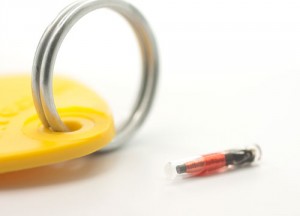Please click on the link to Upstate Veterinary Specialists to see the benefits of mobile ultrasound for your pet.
Are you having problems caring for a terminally ill pet at home? Does your pet have a medical condition that is painful or causing poor quality of life? Are you afraid that your sick or elderly pet is suffering?
Saying good-bye to a beloved pet is one of the most difficult situations a pet owner will ever encounter, but trying to decide when it is time to say good-bye can be even more difficult. There are times when all the capabilities of medical science have been exhausted and euthanasia is the only way to prevent an animal from suffering needlessly. However, the decision regarding when to euthanize is fraught with medical, financial, ethical, religious, moral, and sometimes legal considerations. Euthanasia is therefore a medical procedure that needs to be discussed (however painful that discussion may be) and considered thoroughly before a final decision is made. Let us help you through this difficult time.
Our staff of compassionate, caring professionals can help you through this painful experience. We offer hospice services and will work with you to ensure your pet’s comfort and dignity during his or her last days and final moments. Do you have special requests? Do you have questions about care of your pet’s remains? We can help you with these concerns and will make every effort to accommodate your wishes at this very difficult time.
Deciding when your pet may need hospice care or euthanasia is a very personal and private decision, but that doesn’t mean you have to make this difficult choice on your own. Our hospice and humane euthanasia services are conducted with respect, compassion, and care. Before you struggle through one more day with a sick, elderly, or terminally ill pet that is suffering, call us to learn how we can help.

Imagine if your dog or cat got lost. You’d want to give him or her the best chance of getting home. With microchipping, you can.
Microchipping is a safe, permanent way to identify your pet in case he or she becomes lost. A microchip, which is a tiny device about the size and shape of a grain of rice, is placed just under the loose skin at the back of the neck. When a lost dog or cat without an ID tag is found, a veterinarian or veterinary technician will use a handheld microchip scanner to check for a chip. If the pet has one, it will transmit its ID number to the scanner via a low-frequency radio wave. The veterinary hospital or shelter then calls the chip manufacturer, retrieves the pet owner’s contact information, and calls the owner.
Even the most responsible pet owners can’t always guarantee their pet won’t get lost. A leash could break or slip out of your hand, a pet could push through a screen door or window, or a contractor or friend might accidentally leave a door or gate open.
We recommend that you use a microchip, along with a collar and ID tag, to identify your pet. An ID tag is still a reliable identification method. Pets that have tags with current contact information are more likely to not end up in shelters and tend to get home faster than those without tags. However, collars and ID tags aren’t permanent and can be removed (overnight or for grooming); pets can also lose them. With a microchip, your pet will have a much better chance of being identified and returned to you. Pets without microchips that end up in shelters may be adopted out to another family or even euthanized.
Please contact us to schedule an appointment to microchip your pet. Although we hope your pet never becomes lost, we want you to be prepared. We can also suggest a plan to have in place so if your pet does go missing, you’ll be able to act quickly.
We can microchip ferrets, rabbits, birds, and other companion animals, too!




